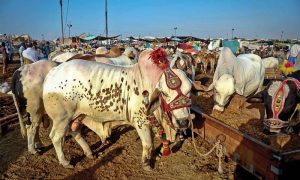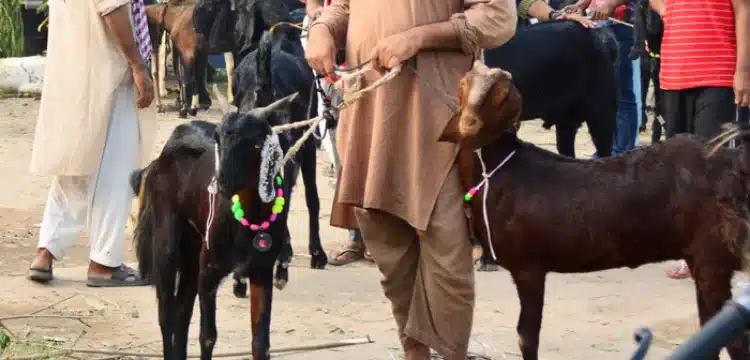[vc_row][vc_column][vc_column_text dp_text_size=”size-4″]When considering a qurbani animal for the Islamic ritual of sacrifice, there are several crucial factors to note. Here are some important considerations:
Eligibility: Ensure that the animal meets the requirements of being eligible for qurbani. This includes being of a certain age and in good health. Generally, animals such as sheep, goats, cows, and camels are considered acceptable for qurbani.
Age: The age of the animal is an important consideration. Depending on local customs and religious rulings, there may be specific age requirements for qurbani animals. For example, sheep and goats are usually at least one year old, while cows are often two years old or older.
Health: It is essential to select a healthy animal for qurbani. The animal should be free from any apparent diseases, disabilities, or visible defects. A healthy animal ensures that the qurbani is carried out appropriately and in accordance with religious guidelines.
Physical Condition: Assess the physical condition of the animal. It should be well-nourished, have a good body weight, and exhibit signs of vitality. Animals that are weak, emaciated, or overly thin are generally not suitable for qurbani.
Beauty and Perfection: According to Islamic tradition, it is recommended to choose an animal that is aesthetically pleasing and exhibits signs of physical perfection. This does not mean selecting an animal solely based on appearance but considering factors such as the symmetry of horns, cleanliness, and overall attractiveness.
Intention and Sincerity: Alongside the physical aspects of the animal, it is essential to have a pure intention and sincere devotion while selecting and performing the qurbani. The act of sacrifice is rooted in piety, obedience, and the willingness to submit to the will of Allah.
Local Regulations: Be aware of any local regulations or guidelines regarding the selection and slaughter of qurbani animals. These regulations may include animal welfare standards, humane slaughter practices, and health inspections.

It is always recommended to seek guidance from knowledgeable individuals, religious scholars, or local Islamic authorities who can provide specific guidance and advice regarding qurbani procedures and the selection of animals in accordance with your local customs and religious practices.[/vc_column_text][/vc_column][/vc_row]











